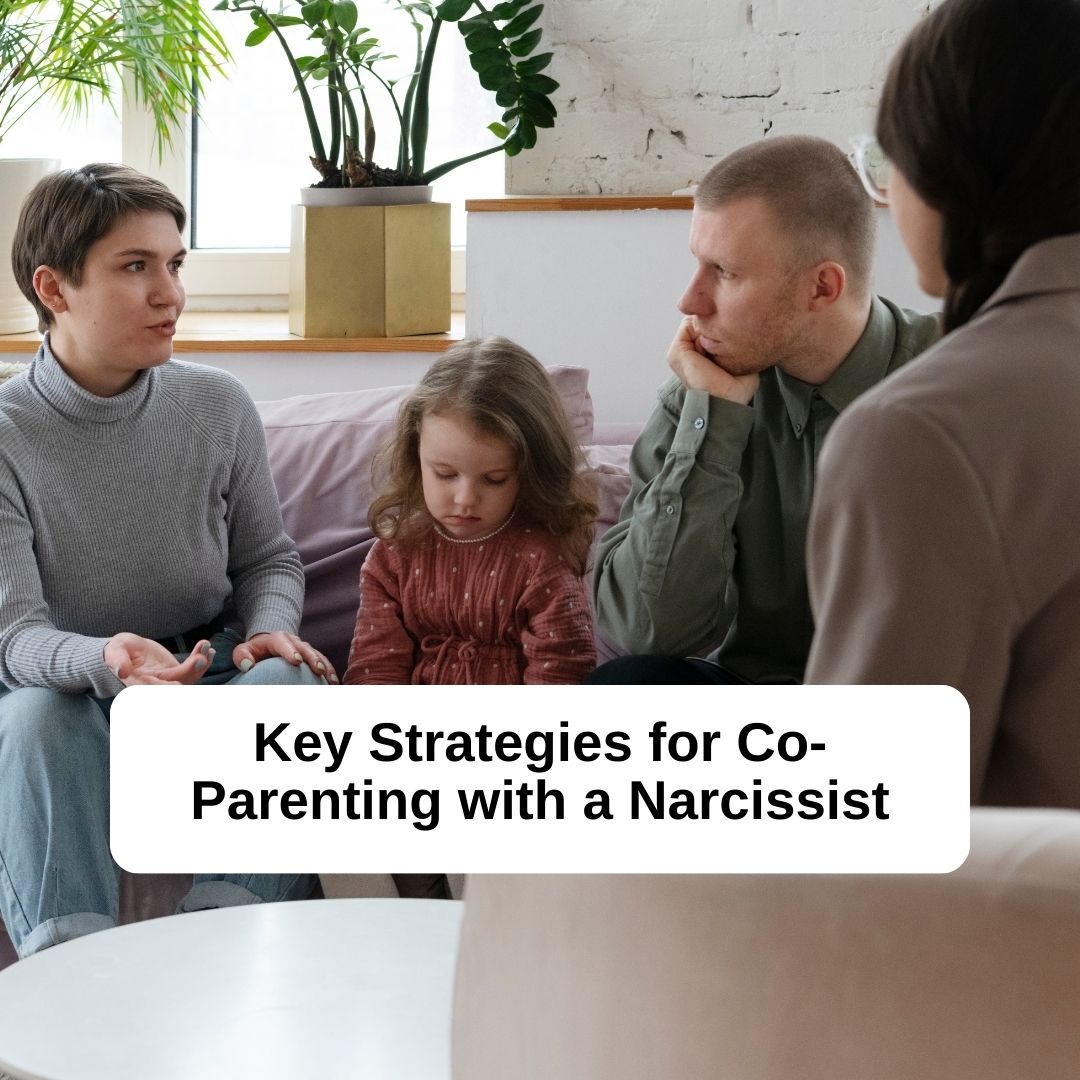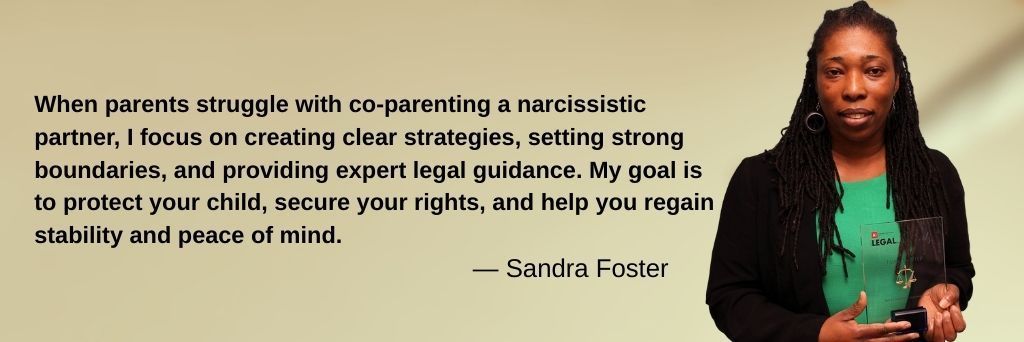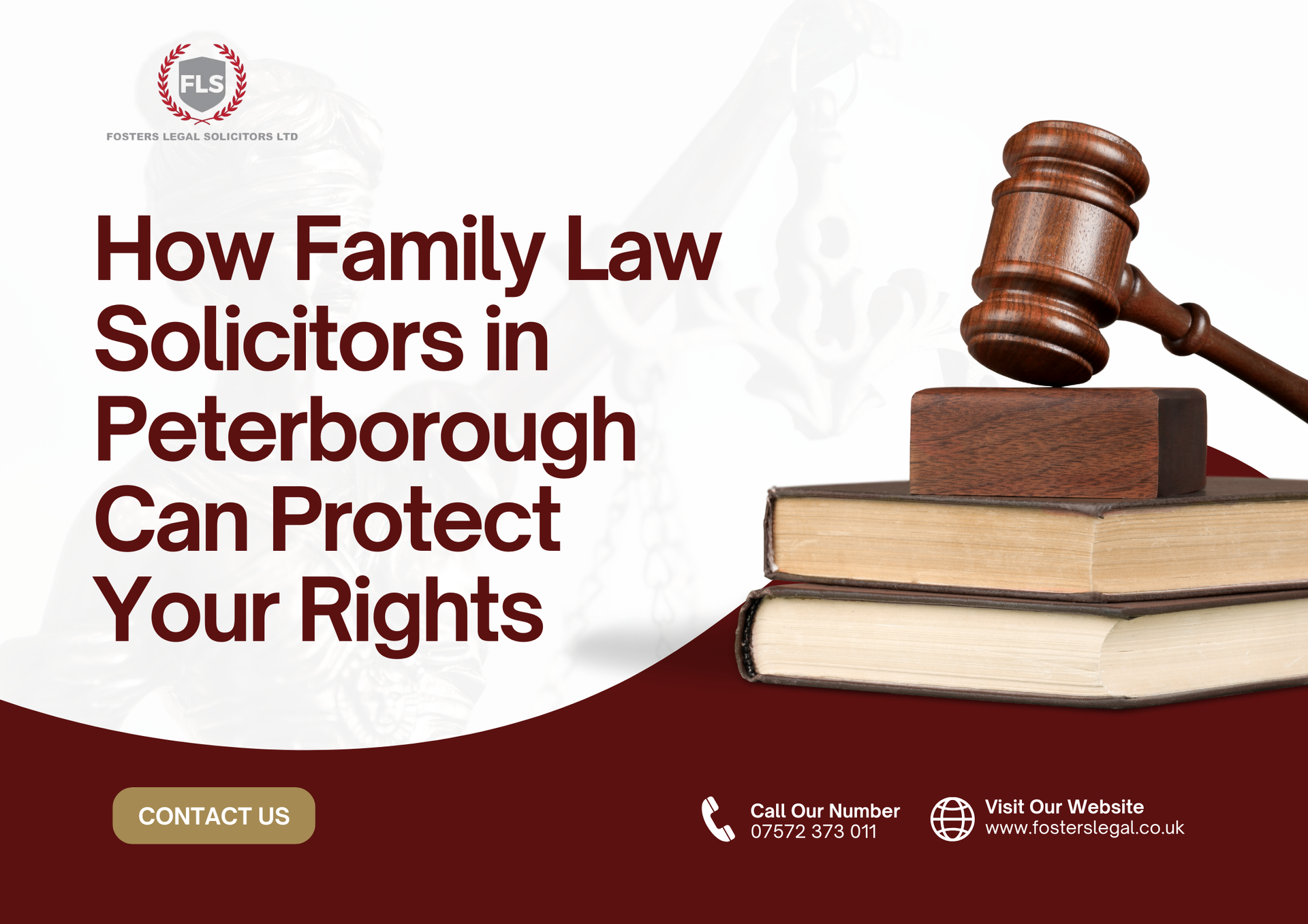Expert Strategies for Co-Parenting with a Narcissist Partner
Expert Strategies for Co-Parenting with a Narcissist Partner

Co-parenting with a narcissist partner after divorce is one of the hardest challenges you will face as a parent. It’s just about navigating manipulation, control, and constant power struggles. Many parents in the UK find themselves asking the same frustrating question: how do I protect my child’s wellbeing when the other parent is constantly choosing conflict?
The truth is, there’s no quick fix. However, there are practical and strategic ways for co-parenting with a narcissist partner. The solution lies in understanding how narcissistic parents behave, and more importantly, learning how to answer their actions without losing calm. This is where the role of calming yourself and
no win no fee solicitors comes. Together, they form the foundation that gives you the transition from surviving to fighting and creating a peaceful environment for the children.
In this blog, we’ll walk you through the key mistakes you can make as parents when co-parenting with a narcissist. And will also explain how to move towards a more strategic mindset, and show why legal advice is absolutely necessary in cases like these. By the end, you'll know more clearly how to defend your rights, keep your kids safe, and break the cycle of conflict that governs your life.
Recognising Narcissistic Patterns in Co-Parenting
Co-parenting with a narcissist can feel like walking in a Mirage. Their behaviour is an absolute range, and spotting these signs early helps you prepare better. Let's understand some common behaviour spotted in a narcissist partner:
Common Behaviours of a Narcissistic Co-Parent
- Control over decisions
- Manipulative communication
- Inconsistency in parenting
- Self-centred approach
Impact of Co-Parenting with a Narcissist on Children
- Emotional strain
The constant shift in behaviour makes children feel confused about which parent to trust and which not to. This affects their confidence and makes them emotionally drained. - Mixed values
The inconsistency of a narcissistic parent creates a lesson in conflicting boundaries, respect, and responsibility. This makes it harder for children to develop clear moral values. - Anxiety and instability
Living with unpredictable behaviour can lead to the early onset of anxiety. Children need routine, and their sense of security is weakened when one parent consistently disrupts it.
Effect on the Other Parent
- Constant pressure
The other parent is frequently exhausted from dealing with manipulation and control. It drains the energy that could have been used for constructive parenting. - Undermined authority
Respect is weakened in front of the child when one parent ignores or disputes the other. This may eventually reduce the effectiveness of guidance and discipline. - Emotional fatigue
Burnout and frustration can result from ongoing disputes and power struggles. This has an impact on both personal well-being and parenting.
Understanding the patterns of a narcissistic co-parent is the first step, but knowing how you respond to these behaviours is equally critical. Many parents, even with the best intentions, fall into common mistakes that make co-parenting more stressful and complicated than it needs to be. Recognising these missteps can help you act strategically rather than react impulsively
Common Mistakes Parents Often Make

Even experienced parents can fall into common traps when co-parenting with a narcissistic partner. Recognising these mistakes early helps you avoid unnecessary stress and protects both your child and your own well-being.
1. Over-Fighting and Revealing Vulnerabilities
- Showing all your intentions or emotional stakes can backfire. A narcissistic co-parent often uses your openness as leverage.
- Constantly challenging them in court or daily interactions drains energy without guaranteeing better outcomes.
- Tip: Focus on calm, factual communication. Keep your priorities private and stick to what’s necessary for your child’s benefit.
2. Giving Up Due to Exhaustion
- Long custody battles and daily conflicts can leave you feeling defeated. This often results in accepting agreements that are less than ideal.
- While it might seem easier to let go, doing so can inadvertently give the narcissistic co-parent more control.
- Tip: Take help from a trusted legal aid solicitor near you. Break decisions into manageable steps and seek professional legal guidance to support negotiations.
3.
Getting Trapped in Endless Battles for Justice
- Trying to achieve “perfect fairness” can consume years, costly legal fees, and emotional energy.
- A narcissistic co-parent may thrive on prolonged disputes, prolonging conflict instead of focusing on what’s best for the child.
- Tip: Identify non-negotiable priorities and accept what’s reasonable. And if you are living in Hemel Hempstead, let solicitors in Hemel Hempstead handle the rest to minimise unnecessary confrontation.
By understanding these pitfalls, you can avoid reactive decisions that escalate tension. The next step is shifting to a strategic mindset, where you respond deliberately and protect both your child’s stability and your own peace of mind
Key Strategies for Co-Parenting with a Narcissist

Co-parenting with a narcissistic partner requires more than calmness; it also demands a smart strategic approach towards the case. Here are some key strategies for co-parenting with a narcissist partner you can consider:
Tactical Communication
- Keep interactions brief, factual, and strictly focused on the child.
- Avoid sharing personal feelings or opinions that could be twisted or used against you.
- Tip: Stick to essential updates and document important exchanges in writing for clarity.
Have a Detailed Custody Agreement
- Clearly outline parenting schedules, responsibilities, and expectations.
- A precise agreement reduces ambiguity and limits manipulation opportunities.
Tip: Review the agreement with a local divorce lawyer to ensure it’s enforceable and protects your rights.
Setting Boundaries
- Limit personal discussions and avoid engaging in unnecessary debates.
- Use email or messaging apps for important communication to maintain a written record.
Tip: Politely but firmly reinforce boundaries whenever they are challenged.
Support for Your Child
- Encourage your child to attend counselling or therapy to process conflicts in a healthy way.
- Professional support helps children understand that parental disagreements are not their fault.
- Tip: Maintain open conversations with the therapist to monitor your child’s emotional well-being.
Avoid Arguments
- Do not engage in back-and-forth confrontations, even if provoked.
- Arguing often fuels a narcissistic parent’s need for control and drama.
- Tip: Respond calmly or redirect discussions to written communication when conflicts arise.
Recognise Triggers
- Identify patterns or behaviours that typically provoke conflict.
- Being aware allows you to prepare responses instead of reacting impulsively.
- Tip: Keep a log of recurring issues to anticipate and manage potential disputes effectively.
Practice Self-Care
- Prioritise your mental and physical health to remain resilient throughout co-parenting challenges.
- Regular self-care helps maintain focus and reduces stress, making decision-making clearer.
- Tip: Schedule consistent personal time and consider support networks or counselling for yourself.
By adopting these strategies, you move from reacting to taking control, creating a more stable environment for your child. The next crucial step is understanding the legal perspective, where professional guidance ensures your rights and your child’s wellbeing remain protected
The Legal Perspective

Navigating co-parenting with a narcissistic partner requires solid legal strategy. Professional guidance ensures your rights and your child’s stability remain protected at every stage.
Why Legal Advice Is Essential
- A narcissistic co-parent may use manipulation or inconsistencies to challenge custody or decision-making.
- Solicitors help you understand your rights and develop realistic expectations for court and agreements.
- Tip: Consult a family law expert or a solicitor like fixed fee divorce lawyers early to avoid missteps that can complicate parenting arrangements.
The Role of Documentation and Custody Agreements
- Keep records of all communication, schedules, and incidents relevant to co-parenting.
- Detailed custody agreements reduce ambiguity and prevent disputes from escalating.
- Tip: Written evidence strengthens your position in court and provides clarity for both parents.
Gathering Evidence
- Collect factual evidence of any behaviour that impacts the child’s wellbeing, such as missed visits or inconsistent routines.
- Evidence doesn’t need to be excessively accurate and relevance matters more than quantity.
- Tip: Maintain concise logs and save messages or emails that reflect interactions clearly.
How Foster Legal Solicitors Help
- Local family law solicitors, like Foster Legal, provide strategies to safeguard both parental rights and children’s stability.
- They guide you on legal documentation, court preparation, and setting realistic, enforceable boundaries.
Tip: Having a solicitor who understands narcissistic dynamics can prevent unnecessary conflict and support informed decisions

Conclusion
Co-parenting with a narcissistic partner is undeniably challenging, but you are not facing this alone. Throughout this guide, we’ve explored how recognising narcissistic patterns, avoiding common mistakes, shifting to a strategic mindset, and securing professional legal support can transform your approach.
By focusing on tactical communication, clear boundaries, support for your child, and maintaining your own wellbeing, you move from simply surviving daily conflicts to actively shaping a stable and safe environment. Legal guidance plays a crucial role in protecting your rights and ensuring your child’s security, making every decision more informed and effective.
Strategic co-parenting with a narcissistic partner is possible when you combine practical strategies with professional support. Foster Legal can provide the guidance and legal expertise needed to navigate this complex journey, helping you protect your child, your rights, and your peace of mind.
Take the first step today, seek expert advice and start co-parenting strategically, putting stability and your child’s wellbeing at the centre
Frequently Asked Questions
How to respond to a narcissist co-parent?
Keep communication factual, brief, and focused on your child. Avoid emotional reactions and document key exchanges to prevent manipulation
How to have no contact and co-parent with a narcissist?
Use structured communication channels like email or parenting apps. Limit interactions to essential child-related matters and let agreements guide all decisions
How can I protect my child from narcissistic manipulation?
Set clear routines, boundaries, and expectations. Encourage counselling to help your child process conflicts without taking sides
What legal steps can I take if my co-parent is manipulative or inconsistent?
Maintain detailed records of interactions and custody compliance. Consult a family law solicitor to ensure custody agreements are enforceable and protect your child’s wellbeing
How do I manage stress while co-parenting with a narcissist?
Prioritise self-care, seek therapy or support groups, and focus on maintaining consistency for your child. Structured routines and professional guidance reduce emotional strain












